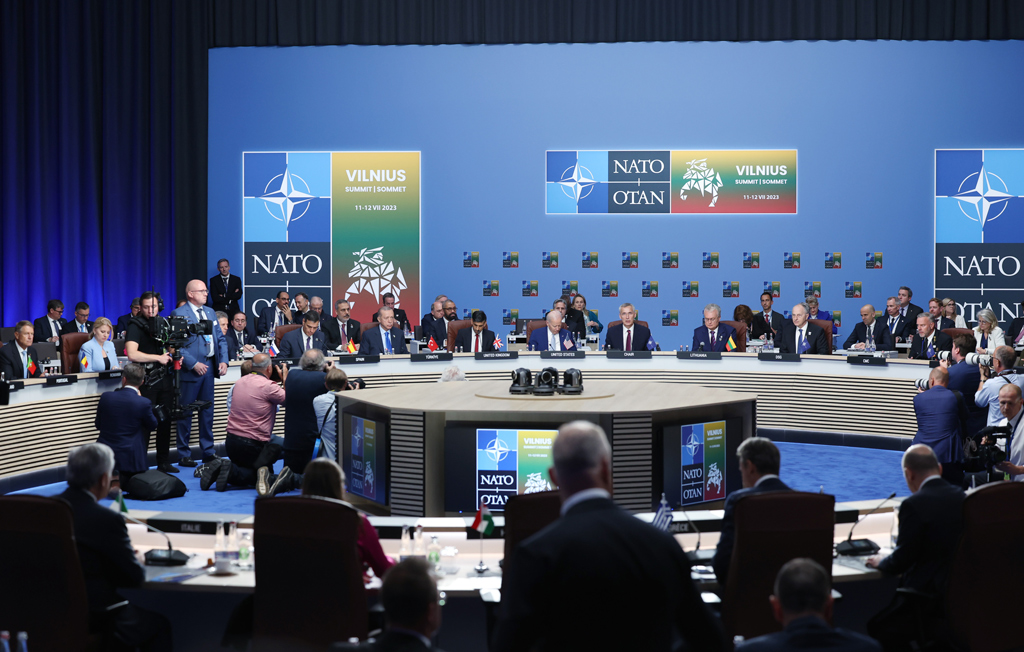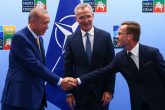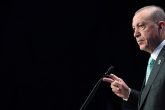The Vilnius Summit is taking place at a time when the NATO alliance is beginning to overcome the strategic ambiguity it has experienced since the Cold War. Following the United States’ declaration of a “war on global terrorism” after the September 11 attacks, NATO became involved in Afghanistan, but the alliance was unable to develop a strategy that aligned with the changing international security system. NATO’s 2010 Strategic Concept document mentioned cooperation with Russia but made no reference to the threat posed by China. Failing to provide a strong response to the annexation of Crimea, the alliance suddenly found itself facing the risk of nuclear war in Europe with Russia’s attempted occupation of Ukraine. This development served as a reminder of NATO’s core mission and highlighted the need for a complete reassessment of Europe’s security. The alliance attempted to present a comprehensive vision against Russia, China, and other global threats in its 2022 Strategic Concept document.
In recent years, the efforts by the United States to revive the Western alliance and form a united front against the China-Russia axis have further emphasized the importance of NATO. In this context, the decisions made at the Vilnius Summit assume critical significance for the role of the alliance in the international power struggle. It would not be surprising to see an increase in support for Ukraine at the summit, but granting NATO membership to Ukraine, as desired by Zelensky, will not be an easy task. Promising NATO membership to a country that is already at war would increase the risk of direct confrontation with Russia, and this formula is not favored. President Biden has not given a green light to Ukraine’s membership as he believes it would further provoke Russia. In Washington, there are discussions about the practicality of providing security guarantees to Ukraine, following an “Israel formula.” On the other hand, some argue that extending the NATO invitation would strengthen Ukraine’s position in a potential ceasefire or peace negotiations with Russia.
NATO countries are engaged in an indirect struggle with Russia by providing military support to Ukraine, but they also strive to avoid direct conflict. To maintain this delicate balance, it is crucial to continue supporting Ukraine while ensuring that Russia does not feel existentially threatened. The recent coup attempt exposed the weaknesses of both Russian military operations and the Putin regime. Extending a NATO membership invitation to Ukraine may further escalate tensions with Moscow, potentially empowering hardliners and prompting Putin to demonstrate his strength. However, NATO’s reluctance to extend such an invitation can also be understood, as it seeks to convey the message that sitting at the negotiation table is the only viable solution for Putin.
If a decision to extend a NATO membership invitation to Ukraine emerges from the Vilnius Summit, it would demonstrate NATO’s willingness to corner Putin. However, if NATO acts cautiously regarding Ukraine, it may imply concerns among alliance members about Putin’s capacity to escalate tensions. The military assistance provided to Ukraine thus far has already initiated the process of Ukraine’s practical integration into NATO, as evidenced by the procurement of Patriot air defense systems, Leopard tanks, and the initiation of F-16 training for the Ukrainian military. Formalizing military integration raises questions regarding the political timing. In other words, NATO prioritizes military integration with Ukraine and is not rushing on the political front. Nonetheless, Türkiye’s support for Sweden’s membership, as facilitated by the Triple Entente, further strengthens Ankara’s political position within the alliance. Türkiye’s insistence on the Triple Entente led Sweden to pass anti-terrorism laws and take some steps, albeit not fully satisfactory. As one of the staunch defenders of NATO’s open-door policy, Türkiye demonstrated its willingness to support Sweden’s membership in principle. By approving Finland’s membership and supporting Ukraine’s membership, Türkiye reaffirmed its commitment to NATO’s expansion by giving the green light to Sweden’s membership, thus removing a significant obstacle from the hands of the US Congress. Moving forward, the Biden administration will need to persuade Congress members to resolve the F-16 sales issue.
Türkiye’s decision regarding Sweden, its impact on the F-16 process with the US, and the potential for a fresh start with the EU will be among the significant outcomes of the Vilnius Summit. If these developments materialize, it would send a message of unity within the alliance and usher in a new era in relations between Türkiye, the US, and the EU. Meeting Türkiye’s expectations, as one of the countries playing a critical role in the alliance’s history, will contribute to considering the Vilnius Summit successful. Overcoming the F-16 issue prior to the upcoming NATO summit in Washington would not only enable the normalization of Turkish-American defense relations but also ensure the alliance’s deterrent power is preserved.



